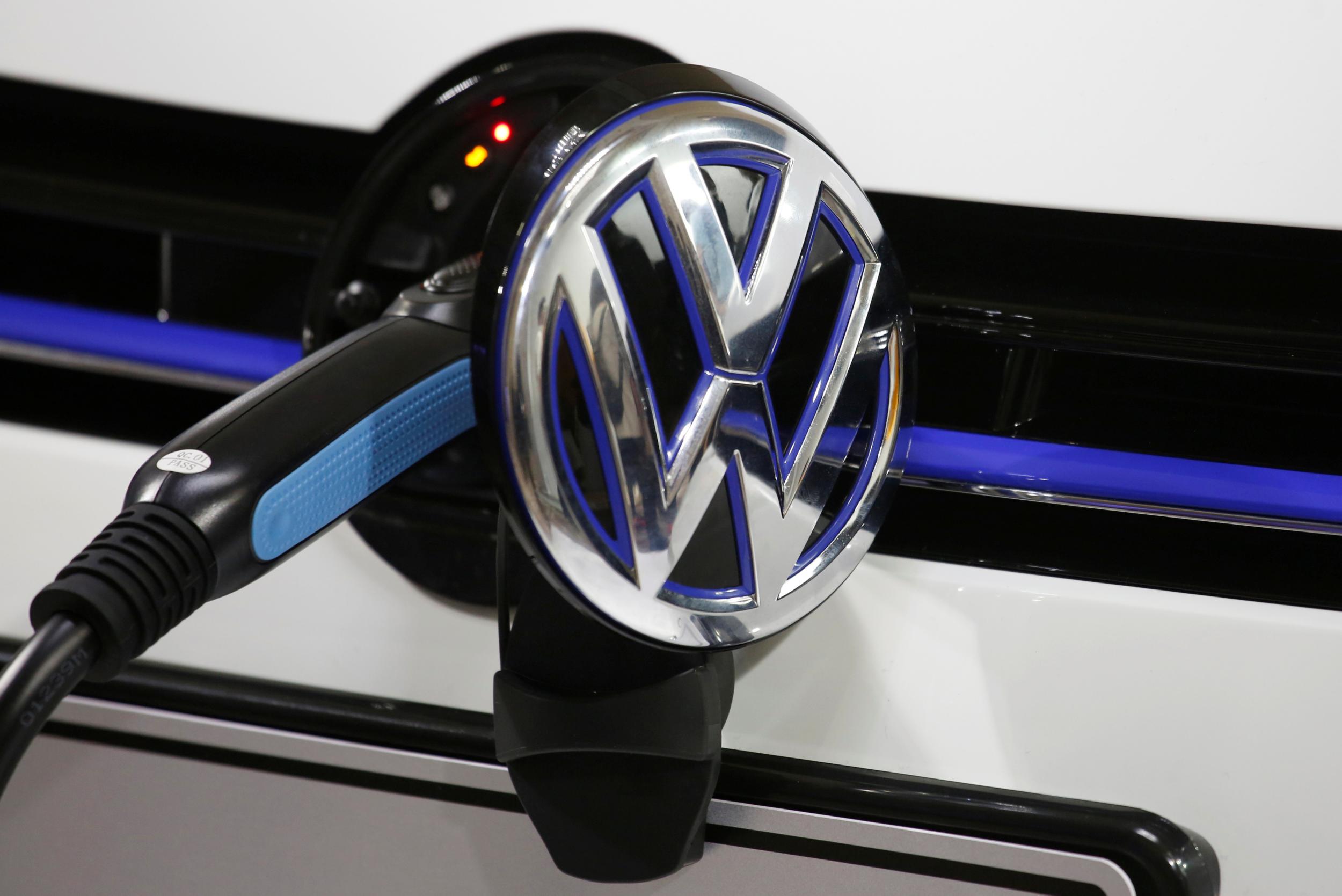Is VW facing a shakedown from America’s SEC over emissions scandal?
The carmaker says the American watchdog is ‘piling on’ and there is a whiff of politics in the background. But in the end it will likely settle

The volley fired at Volkswagen by American’s chief financial regulator this morning is rich with irony.
Donald Trump’s administration frequently denies climate change and has appointed a string of people who appear to care nothing for the environment to agencies charged with protecting it. Yet here is the Securities and Exchange Commission (SEC), another of its arms, using an environmental scandal to chase down a truckload of cash from a carmaker.
You’ve probably heard about VW’s emissions scandal, but here’s a refresher just in case. VW had installed in its diesel cars software that allowed them to cheat emissions tests. The devilishly clever “defeat device” was able to detect when the vehicles were being put under the microscope and to alter their performance accordingly with the aim of securing a passing grade.
When its existence emerged, the subsequent scandal knocked confidence in diesel cars globally and led VW to pay out billions of dollars in fines and compensation around the world, including in settlements agreed with watchdogs in the US up to and including the Department of Justice.
The SEC hopes to join the party by alleging that VW and its CEO Martin Winterkorn defrauded investors in billions of dollars worth of securities sold by the company – bonds and the like – because they were unaware that it was cheating at the time the investment paper was sold. Had they known, it argues, they might have been inclined to charge the company rather more than they did.
VW professes outrage, claiming that the SEC’s move is “legally and factually flawed” and that it’s engaged in piling on.
And it is.
We’ve seen this sort of thing before when companies do bad things, banks in particular. The US regulatory system has many parts, many arms, and they all like to take their cut when there’s money to be had. Sometimes it seems as if the numbers quoted in settlements have been plucked out of the air.
There is also just a whiff of politics in the air here. Trade talks between the US and the EU have not been going well. Its tech kings have faced big fines from EU watchdogs. Germany’s leader Angela Merkel and Trump detest each other.
None of this changes the fact that the existence of the defeat device was, and is, an appalling scandal, a shameful and environmentally destructive piece of cheating.
Even if this is a shakedown, and even if it there is a political element to it (which will be denied) VW did wrong, just as the banks did when they got soaked. The only question is whether the SEC can prove that it extended to investors as well as to customers and the air we all breathe.
As regards that, it hasn’t hard to pick holes in VW’s response.
The carmaker has pointed out that the SEC does not charge that any person involved in the bond issuance knew that Volkswagen diesel vehicles did not comply with US emissions rules.
No, but leaving aside Winterkorn’s case, people who knew about the defeat device will have known that the company issued bonds from time to time, and we’re talking about the corporate entity here.
The carmaker has also said that bond investors were paid all the interest due them and got back their investments at the end of the bonds’ term. Great. But the bonds were still sold in the absence of a rather important piece of information which would almost certainly have affected the terms had investors known about it.
Think about it in this way. You tell a bank that you’re employed full time as a software engineer on your application for a big mortgage when you are in fact a freelancer and have secured from your parents a promise to keep things ticking over for you if your work dries up.
The bank grants you a loan at favourable terms, and gets paid back, with the help of the bank of mum and dad along the way. Congratulations. But notwithstanding that the bank is a sophisticated lender, and hasn’t lost anything through your actions, you have still committed mortgage fraud (and so have your mum and dad) because it would have charged you a lot more had it known the full facts. That may be oversimplifying a bit, but still.
VW says it will fight vigorously, arguing that the SEC’s claim is “wrong in fact and law”. But it’s hard to feel much sympathy for it, and it’s equally hard to imagine the case getting before a judge given the way these things go. I’d put my house on there being (yet another) big settlement paid out down the road.
Join our commenting forum
Join thought-provoking conversations, follow other Independent readers and see their replies
Comments